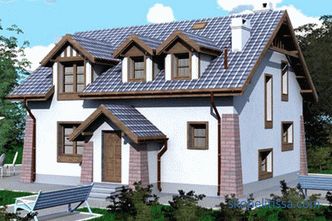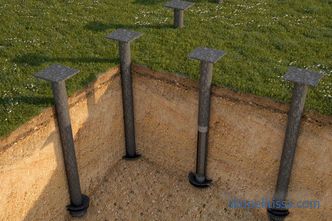In the Soviet Union, citizens were given land plots to which they went to cultivate their garden, so as not to wean from their work, even during weekends. In modern Russia, summer cottages have become a place of rest.
According to experts, there are about 60 million summer residents and gardeners in the country. So many Russians will be affected by the new law on horticulture, which has already received the name "dacha reform" among the people.
But is it fair and what exactly will change dramatically for the owners of country houses? We studied the new bill and tried to figure out what changes are awaiting the Russian gardeners.
About the law
The last time was remembered of summer residents 18 years ago, when the current version of the law on summer residents was adopted. More precisely, no summer residents and summer houses did not exist at all: there were only land plots, residential buildings and residential houses. Now, thanks to the new law, we will find out what a summer house is, a garden and garden plots, as well as a garden house.
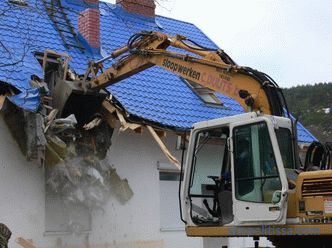
There are about 3 million people in Moscow and the Moscow region, and the law will affect them all. According to the document, the dacha plots will be divided into garden and garden. There is bad news for owners of garden plots with houses suitable for living built on them - they will have to be demolished, if it is impossible to re-register a garden plot into a garden plot, since only farm buildings are allowed to be built on garden plots: barns, toilets, barns.
In addition, the order of membership dues will change. According to the director of the department of elite real estate of the company "Metrium Group" Ilya Menzhunov , now they will be obligatory directly dependent on the area of land ownership and the objects of real estate located on it. "But there are pluses - the introduction of a clear division of the plots into groups will lead to uniformity of suburban settlements. The" palaces "through the fence from the gardens will disappear. The number of storeys will restrict order in the cottage settlements. In my opinion, this is a positive trend. When buying land, the client should be I am sure that in ten years they will not be forced to demolish his house. In the suburban market today there is no such order, which makes it difficult not only for summer residents, but also for developers, namely, private developers, ”the expert believes.
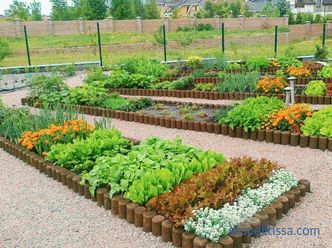
Roman Konyakhin , managing the exhibition "Low-Rise Country", said that now the size of new houses (area, height, number of storeys) that developers want erected on the garden plots, it will be necessary to coordinate with the local authorities so that the objects satisfy the town-planning regulations for the development of territories. "In such lands it will be impossible to build apartment buildings, that is, it will not be possible to build a multi-format village with cottages and low-rise apartment buildings, which has been quite popular lately," he shared.
At the same time, the initiative with regards to membership dues will help reduce the misuse of funds, because, unfortunately, until now it has been a common practice to spend this money inefficiently, and even the summer residents themselves could not always check on what really went their blood. According to the authors of the bill, the fight against corruption is one of the tasks of the new reform.
How will it affect?
In general, the law will affect not only the order of construction of houses in the dacha plots, but also the cost of living outside the city. The change in the status of the land will not affect the tax base, which will continue to be calculated on the cadastral value, but an increase in the cost of living, according to Alexander Yasenkov, adviser to the general director for legal issues of Landwerk, may occur due to an increase in membership and earmarked contributions. "For example, the Real Estate Owners Association (TSN) will want to restore order in its territory, say, prepare and approve a territory planning project within the TSN border in order to determine the location of its capital construction objects, which, in turn, will be used by TSN members Or to make a land survey project in order to form separate land plots related to public facilities and so on, ”the expert said.
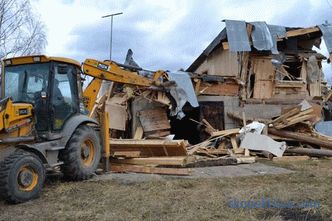
It should be noted that according to Article 20 of the draft law, the amount of contributions may be different for individual TSN members, if this is due to the different use of public property of the partnership, depending on the size of the land plot or holiday home. This provision of the draft law is very important and will allow minimizing the risk of litigation between the partnership and gardeners, who are forced to pay uniform rates, despite the size of their real estate objects and the volume of use of common property, including the litigation.
In addition to the summer residents themselves, developers will also feel the changes, and they will be obliged to coordinate all construction work with local governments. In addition, developers will increase the cost of land surveying and improvement of public areas.
Country registration
It is believed that thanks to the new law, it will now be possible to register freely in summer cottages. But this is a misconception, experts insist. To get a permanent registration at the place of residence in a country cottage house is real and now, and by 2020 it can be done under a simplified scheme.
Currently, in order to have a permanent registration at the place of residence in a country cottage (provided that the land is in the form of permitted use - for gardening or country house construction (not individual housing construction)), it is necessary to come into force court decision recognizing a country house suitable for permanent year-round living. The key to victory in court, as a rule, is the appropriate conclusion of the judicial construction and technical expertise.
It is quite obvious that the judicial procedure for the possibility of “registering” at a dacha is not always convenient for a citizen and this is a big obstacle for him in the realization of his right.
Article 3 of the bill distinguishes two types of country houses: a garden house and a country house (cottage). The country house (dacha) is a residential house intended for rest and long-term or permanent residence, not subject to the division into apartments. Based on the content of the bill, permanent registration at the place of residence will be possible only in a country house. In this case, the court decision is no longer required.
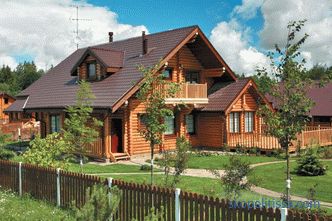
"The issue of permanent registration at the cottage is one of the most popular questions of our clients. Many of them acquire land plots and build houses on them with this very perspective. Therefore, joining the strength of this bill, in our understanding, will be one weighty tool in increasing sales in the suburban real estate market, ”said Alexander Yasenkov.
But Ilya Menzhunov does not agree with his colleague. In his opinion, registration in the country very few people need. "It is unlikely that even in the case of a simple and transparent registration procedure, residents of the metropolitan region will massively get a residence permit in their country house. According to our practice, in 80% of high-budget cottage facilities nobody is registered, because there is no need for this. For most, a country house is a temporary option for seasonal living, most of the time they spend in the apartment where they are registered. Accordingly, the possibility of unimpeded registration hardly somehow has a dramatic effect on the attractiveness of suburban projects " - he said.
Thus, although the new initiative of federal officials will affect a huge number of people, the degree of influence of the law on each of them will be different. For someone, a new order can put an end to country living and comfortable holidays in a favorite garden, but for someone everything will remain the same. In a word, it’s worth waiting for the new order to become a reality, and after that sum up some results.
